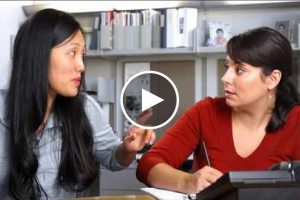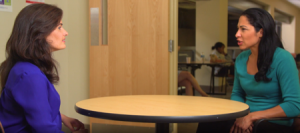The following case scenarios have been featured as an R4I@UF “Case of the Month”. For more information about rigor and reproducibility, see the Resources link above.
Lack of Transparency
Before watching the video, briefly discuss these two questions. Do you think most people knowingly display a lack of transparency or inadequate reporting of methodological details in published papers? What role, if any, do journals have a role in determining adequate reporting? Click on the video link to watch the scenario (3:24). After watching the video, consider some of these questions.
- Can you relate to a similar experience in your own lab?
- Do you think the corresponding author should have handled the situation differently?
- Was there anything the graduate student or PI could have done to determine this without multiple conversations with the corresponding author?
- The corresponding author was very open and transparent with the PI. Do you think this would always be the case?
- In this instance, the PIs had been in communication previously, so it provided Dr. Hansen the opportunity to look for the experimental details. Do you think it is realistic that he would have known specifics about the experiment had this not been the case?
- How would you handle the situation if the corresponding author did not want to provide data or discuss the experiments beyond generalities?
- Would it always be so easy to locate the corresponding author? Alternatively, do you think the corresponding author always would be able to locate the details, particularly if the person who had done the experiments had left their lab and/or if several years had passed since the original paper was published?
- Do you think you or your PI would have been as rigorous about determining why the results weren’t reproducible if you encountered a similar situation?
- Would you have made the controls fresh each time or frozen them for reuse, assuming there would be no degradation?
- Was the experiment designed poorly or was it a simple mistake by those in the lab performing the experiments?
This scenario was produced by the National Institute of General Medical Sciences.
Reproducibility or Luck? The Struggle to Get Results
This case features a brief video with part of the story of the fictional laboratory of Dr. Thompson, exploring issues that arise from being in a small lab through the eyes of a new principal investigator (PI), a postdoctoral fellow, and a graduate student. Dr. Jeff Thompson is driven to secure his reputation as a successful researcher after recently leaving the lab of respected scientist. His relationship with his former PI has helped him immensely in the past, but he is eager to escape from under his shadow. Amit is a postdoctoral fellow in Dr. Thompson’s laboratory. He completed his PhD in India and came to the US to bolster his professional reputation. He and his wife are expecting their first child soon. Dr. Thompson relies on him to mentor graduate students with which he has little experience. He goes to great lengths to seek approval from his PI. Ashley is a graduate student in Dr. Thompson’s lab, who hopes to receive more individual attention. During her training, she encounters difficulties and uncovers questionable research practices. Click on the image to watch the short video. Then consider the following questions.
- What pressures is the graduate student facing right now?
- How might those pressures change how she conducts her research?
- What, if anything, could be done to alleviate those pressures, or to help her become more adept at dealing with them?
- What is the importance of data replication here?
- When you have contradictory results, how do you choose what, or how much of it, to present?
- What issues could arise if only the single positive result is reported?
- What could have been done by all involved (graduate student, postdoc, Principal Investigator, and others) to ensure more consistency in the graduate student’s results and experiments?
- How would you feel if you were in the graduate student’s place?
- Is there someone else you might talk to of you were in this position?
- Should the graduate student tell the PI that she does not remember what experimental condition (buffer) she used to get the “good” result?
This scenario was produced by the US Department of Health & Human Services Office of Research Integrity.


